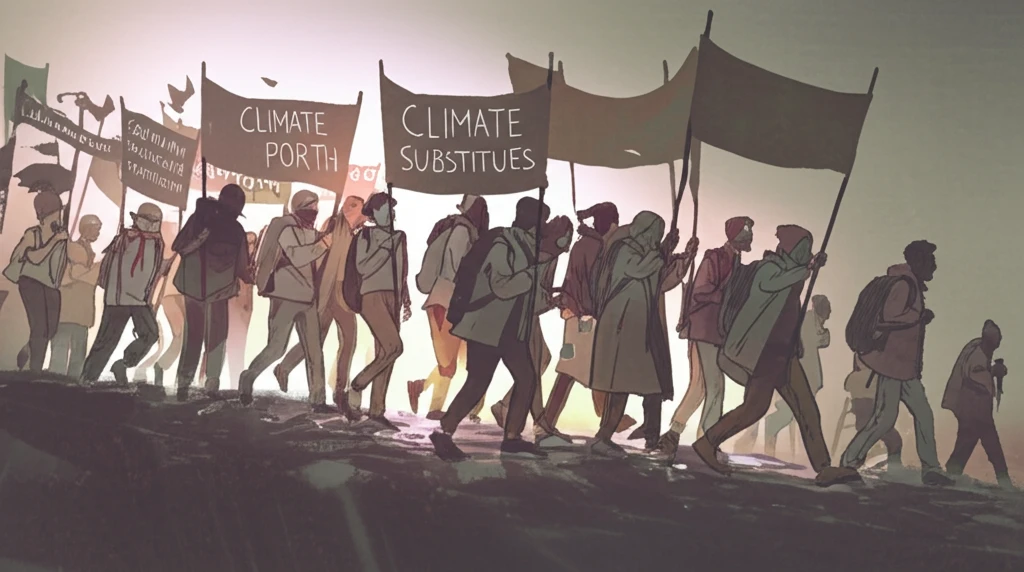
The Climate Protest Paradox: Why More Activists Might Mean Fewer Participants
"Discover how individual beliefs about collective action are reshaping climate movements and what it means for the future of environmental activism."
Political activism is surging globally, fueled by digital tools, and climate change stands as one of its most pressing concerns. Understanding the dynamics of protest movements is essential for driving social change, yet many questions remain about why individuals choose to participate.
While it's often assumed that a greater belief in the collective effort would boost individual participation, a recent study uncovers a surprising twist: strategic substitutes. This means that individuals might be less inclined to join a protest if they believe many others will participate anyway. This phenomenon challenges conventional wisdom and has significant implications for how we mobilize and sustain climate action movements.
This article examines the unexpected relationship between beliefs and participation in climate protests, drawing insights from field experiments conducted across four major German cities. By understanding these subtle dynamics, we can better strategize for effective climate action and social movements in the future.
The Surprising Impact of Beliefs on Climate Protest Participation

A groundbreaking study, published December 17, 2021, delves into the complexities of climate protest participation. The researchers focused on a critical question: Are individual decisions to join a climate protest truly independent, or are they influenced by perceptions of what others might do? The study, conducted across four major German cities, uncovers that potential climate protesters are influenced by what they believe other potential protesters may do.
- Data Collection: Surveys measured participation and beliefs about others' actions.
- Informational Intervention: Subjects received varied information to shift their beliefs.
- Causal Effect Analysis: Control functions estimated how beliefs influenced actual participation.
Implications for the Future of Climate Activism
This research offers key insights for organizers and policymakers. By understanding that individuals may be less likely to act when they believe others will, strategies can be adjusted to emphasize the importance of each individual's contribution. Effective mobilization could involve personalized calls to action, highlighting the unique impact each participant can make, and fostering a sense of individual responsibility within the broader movement. Further research could explore how different framing and communication strategies can overcome the strategic substitutes effect, ensuring sustained engagement in climate activism.
